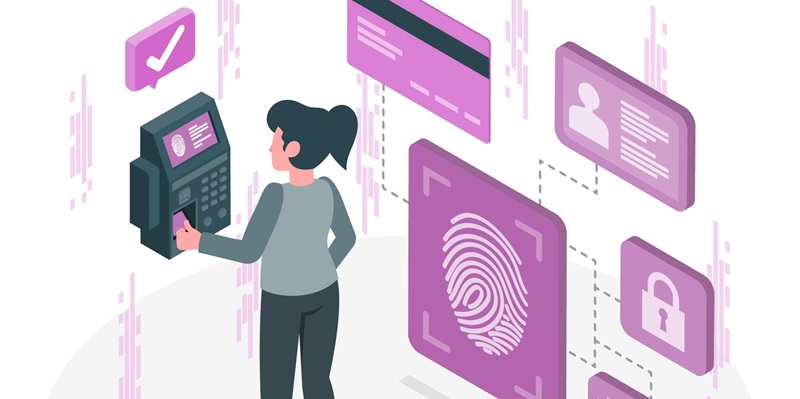In an ever-evolving digital landscape, biometric authentication has emerged as a game-changer, revolutionizing the way transactions are validated. With its ability to eliminate operational overhead and enhance security, businesses and technology giants have recognized the immense potential of biometrics. This article delves into the partnership between Mastercard and NEC Corporation, the growing adoption of biometrics among consumers, the challenges faced in its adoption, and the exciting future that lies ahead.
Partnership between Mastercard and NEC Corporation
Mastercard and NEC Corporation have joined forces to usher in a new era of in-store biometric payments. Their pooled expertise aims to create a seamless and secure checkout experience through the Biometric Checkout Program. By utilizing cutting-edge biometric technology, this program promises quick, secure, and PIN-free transactions, eliminating the reliance on traditional payment methods.
With the Biometric Checkout Program poised for global scale, the benefits extend beyond convenience. The integration of biometrics into the payment process ensures improved security by verifying the unique and immutable characteristics of individuals. Furthermore, this program promotes efficiency by significantly reducing transaction time, streamlining the payment journey for both customers and retailers.
Growing adoption of biometrics among consumers
The adoption of biometrics signifies a seismic shift in how consumers validate transactions. Nearly 60% of U.S. online purchasers have embraced biometric authentication, recognizing its advantages over traditional authentication methods. The seamless integration of biometrics into the transactional ecosystem brings a renewed sense of security, efficiency, and user-friendliness.
Statistics reveal that 82% of consumers in the Asia Pacific region are already using at least one form of biometrics. These numbers highlight the readiness and acceptance of biometric authentication in one of the world’s largest consumer markets. The significant adoption rates in both the U.S. and Asia Pacific region foreshadow a future where biometrics are intrinsic to everyday life.
Challenges in biometric adoption
As biometric authentication becomes increasingly prevalent, concerns about data protection and privacy naturally arise. The safeguarding of biometric data is of utmost importance, necessitating the development of robust security measures. Striking the right balance between convenience and protecting sensitive personal information remains a crucial challenge.
Biometric authentication also presents a challenge in navigating the evolving regulatory landscapes. Governments and regulatory bodies are taking a proactive approach to establishing guidelines and frameworks to ensure the ethical and legal use of biometrics. Adhering to these regulations while delivering a seamless user experience is a balancing act faced by organizations implementing biometric solutions.
The future of biometrics in transactions
The seamless integration of palm-based identity services and facial recognition into everyday transactions hints at a future where the need for physical IDs and passwords fades away. By leveraging the unique characteristics of an individual’s palm or facial features, businesses can provide secure and frictionless transactions, enabling a more efficient and convenient payment process.
In this biometric revolution, each palm scan, facial recognition, and fingerprint verification symbolizes a step toward a future where transactions are not just secure but effortlessly woven into the fabric of daily life. The cumbersome reliance on physical IDs and complex passwords diminishes, granting individuals unprecedented convenience and peace of mind.
Biometrics as a testament to staying power
The overwhelming adoption and acceptance of biometric authentication stand as a testament to its staying power. As a robust and reliable technology, biometrics has proven its ability to withstand challenges and evolve to meet the demands of the ever-changing digital landscape. Its continued adaptation by major industry players strengthens the case for its sustainable future.
The future of transactions appears promising as biometric authentication becomes an integral part of the digital fabric. With the elimination of operational overhead, enhanced security, and improved user experience, individuals can look forward to a world where conducting transactions is effortless, safe, and seamlessly embedded into their everyday lives.
The era of biometric authentication has arrived, reshaping the way transactions are validated and revolutionizing the digital landscape. The partnership between Mastercard and NEC Corporation, coupled with the growing consumer adoption of biometrics, signifies the undeniable potential of this technology. However, challenges such as data protection, privacy concerns, and evolving regulatory landscapes must be addressed to ensure a secure and ethical implementation. With the promise of a future where physical IDs and passwords become obsolete, the resilience and staying power of biometrics remain a constant reminder of its transformative impact on the transactional ecosystem.

